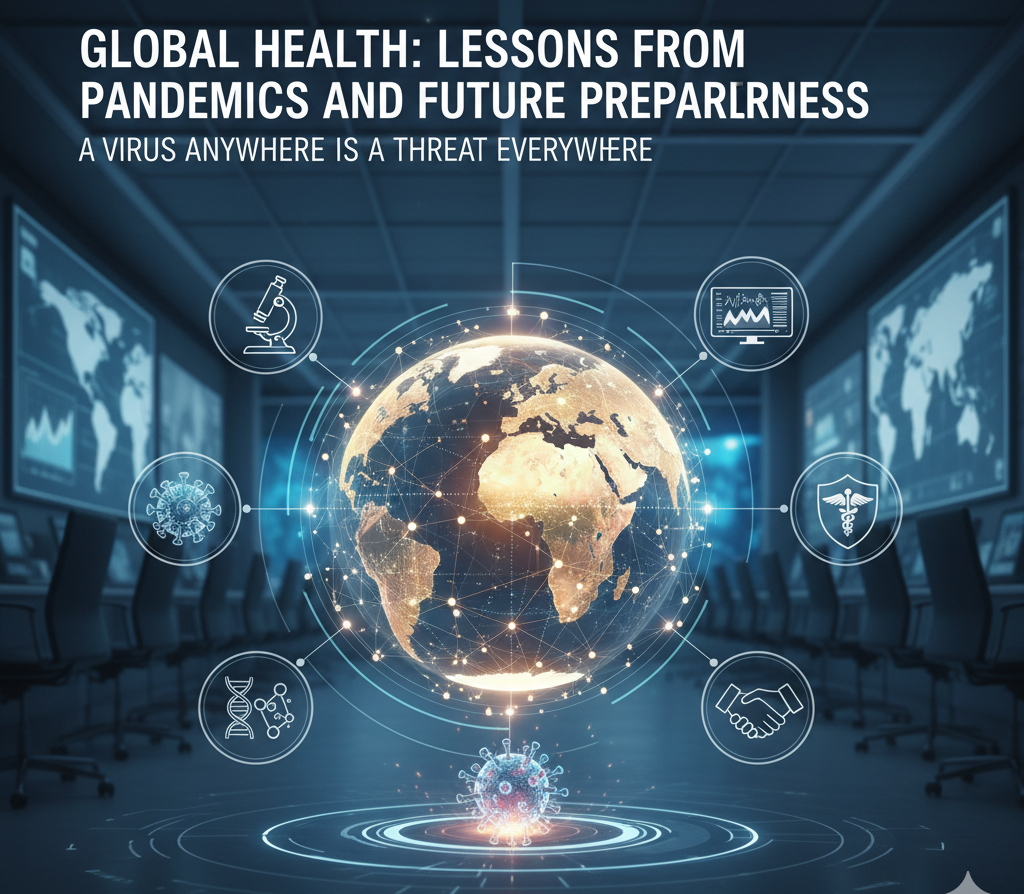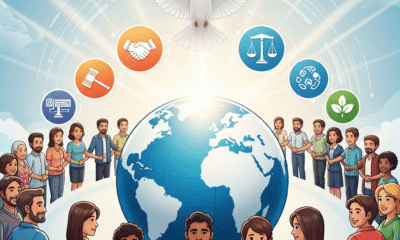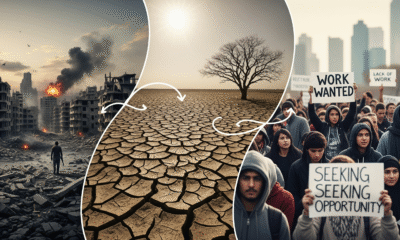Introduction
Health is the foundation of prosperity, peace, and sustainable development. The COVID-19 pandemic was a stark reminder that global health is not a national issue but a collective one. In a matter of weeks, the virus spread across borders, disrupted economies, and reshaped societies. While COVID-19 was unprecedented in scale, it is not the first pandemic humanity has faced—and it won’t be the last.
From the 1918 influenza pandemic to Ebola outbreaks in Africa, history shows us that infectious diseases thrive in a connected world. The key question is: what lessons can we learn from past pandemics, and how can we prepare better for the future?
Why Global Health Matters in the 21st Century
- Interconnectedness of Nations
- Modern globalization means diseases can travel faster than ever.
- Example: Within 3 months of COVID-19 emerging in Wuhan, cases were reported in over 100 countries.
- Economic & Social Impact
- The World Bank estimates the global economy lost over $10 trillion due to COVID-19.
- Beyond economics, millions faced job losses, mental health crises, and disruptions in education.
- Security & International Relations
- Pandemics are not just health issues—they are matters of peace & security.
- Misinformation, vaccine nationalism, and border closures strained diplomatic relations between nations.
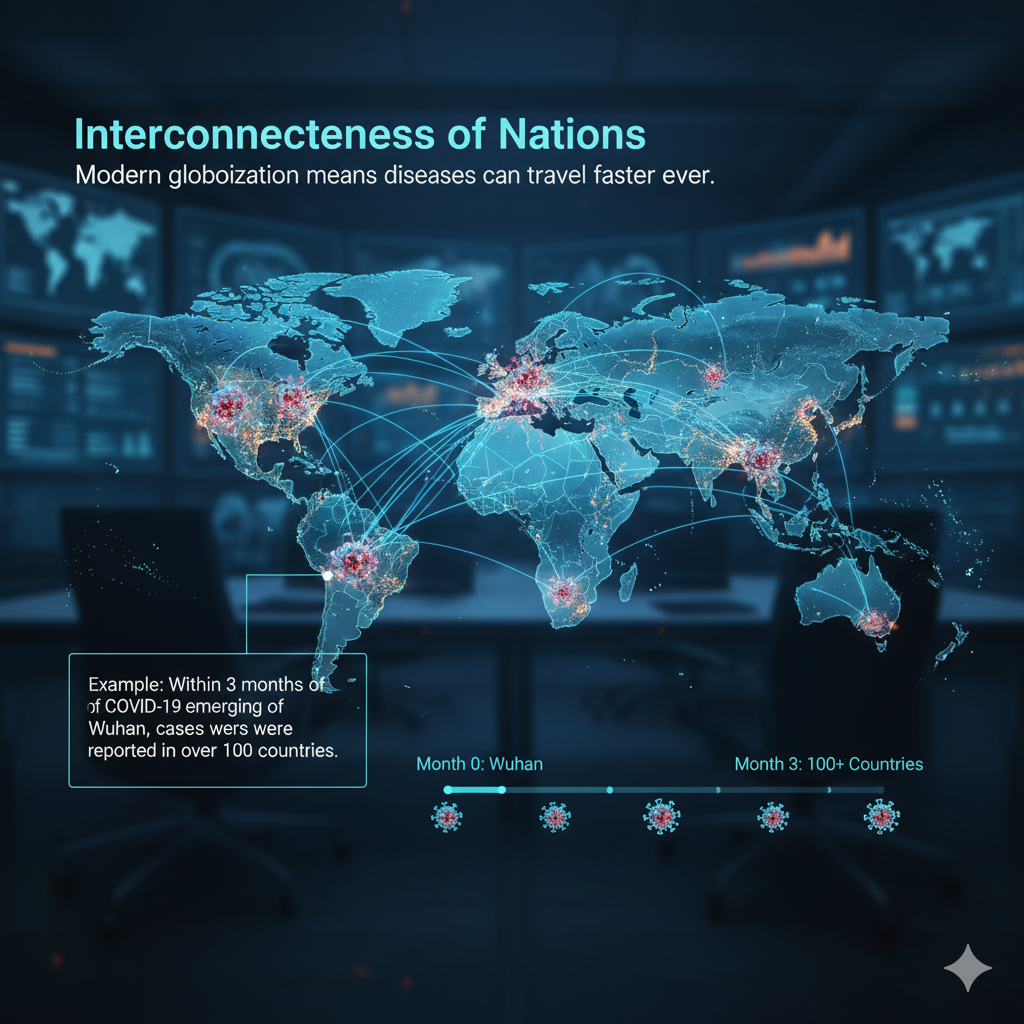
Lessons Learned from COVID-19 and Past Pandemics
- The Importance of Early Detection and Data Analytics
- Countries with strong data analytics infrastructure (e.g., South Korea, Taiwan) were able to track and control outbreaks effectively.
- AI-driven epidemiological models now help predict disease spread.
- Global Collaboration is Non-Negotiable
- The COVID-19 vaccine race showed both the power and pitfalls of collaboration.
- Initiatives like COVAX aimed at equitable vaccine distribution but struggled due to vaccine hoarding by wealthier nations.
- Strengthening Health Systems
- Many nations lacked ICU capacity, ventilators, and healthcare workers.
- Investment in public health infrastructure is critical for resilience.
- Mental Health Cannot Be Ignored
- Lockdowns and isolation triggered widespread mental health issues.
- According to WHO, anxiety and depression increased by 25% worldwide during the pandemic.
- Technology as a Double-Edged Sword
- Digital platforms enabled remote healthcare, telemedicine, and contact tracing.
- But they also fueled misinformation, undermining global governance efforts.
The Role of International Institutions
- World Health Organization (WHO)
- Acts as the global coordinator for health emergencies.
- Criticized during COVID-19 for delayed warnings, yet indispensable for global standards and data sharing.
- United Nations & International Law
- Under international law, countries are expected to share outbreak data transparently.
- Strengthening compliance mechanisms will be crucial for future crises.
- G20 and Multilateral Forums
- Played a role in ensuring global trade in medical supplies continued.
- Could be expanded to include health-focused emergency funds.
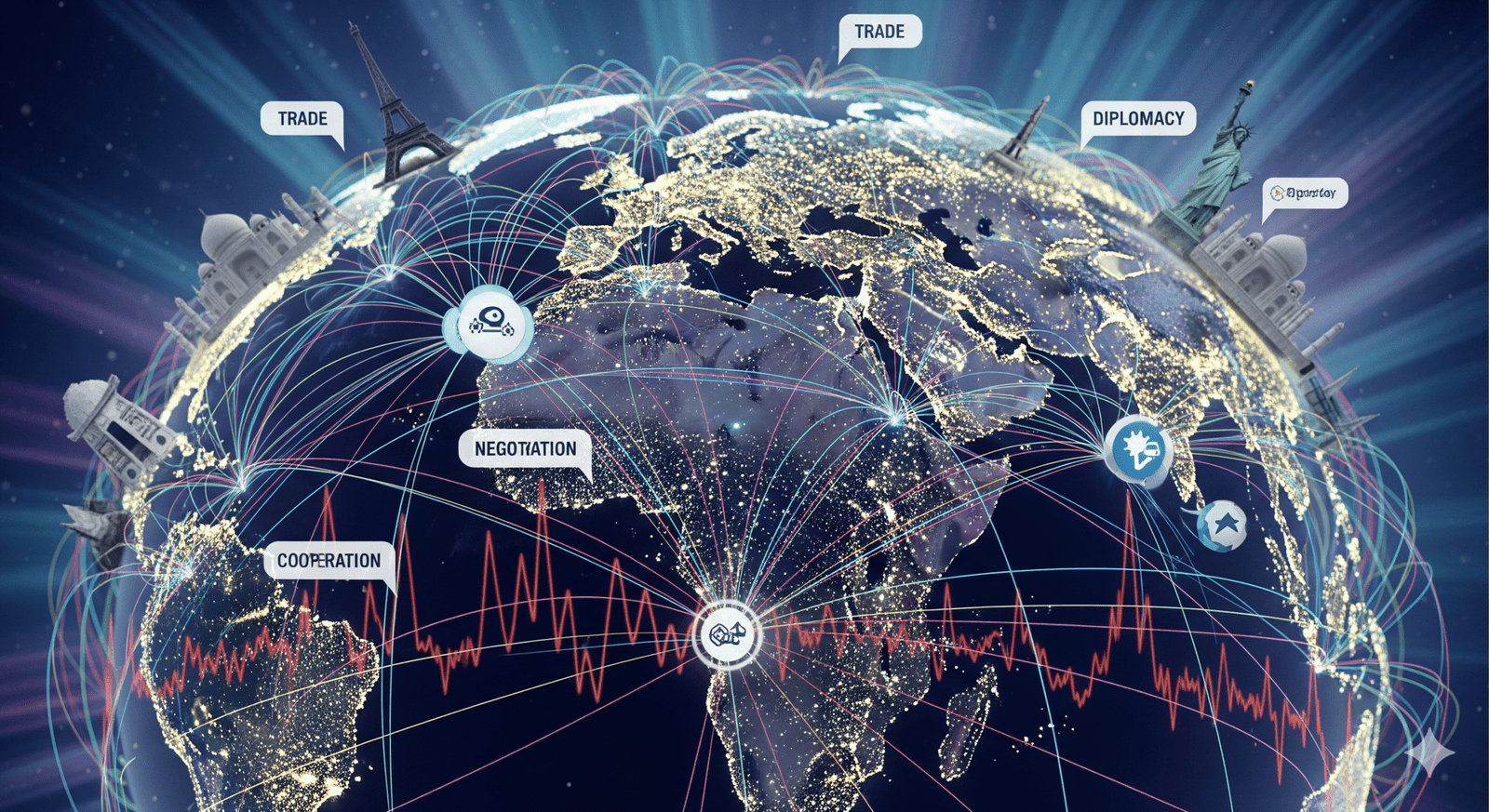
Case Study: Africa’s Ebola Response vs. COVID-19
- During the 2014–2016 Ebola outbreak, West African nations learned critical lessons in containment, community engagement, and cross-border cooperation.
- These lessons helped countries like Nigeria and Senegal respond swiftly to COVID-19, using humanitarian aid networks and strong local health systems.
- The contrast highlights that preparedness is not only about resources but also about experience and adaptability.
Challenges in Building Future Preparedness
- Vaccine Inequality
- By mid-2021, wealthy nations had vaccinated over 60% of their populations, while some African countries had less than 5% coverage.
- Future frameworks must ensure fair access to life-saving technology.
- Geopolitical Tensions
- International relations often sour during crises, with nations prioritizing self-interest.
- Vaccine diplomacy became a new tool of influence for powers like China, Russia, and the US.
- Misinformation Epidemic
- “Infodemics” spread false cures, conspiracy theories, and vaccine scepticism.
- Strengthening digital literacy is as important as medical infrastructure.
- Weak Health Systems in Developing Nations
- Many countries still lack the capacity for mass testing, surveillance, and hospital preparedness.
- Without investment, they remain vulnerable to the next outbreak.
The Future of Global Health Preparedness
- Strengthening One Health Approach
- Recognizes the link between human, animal, and environmental health.
- Zoonotic diseases like COVID-19 and SARS originated from animals—future strategies must address this root cause.
- Global Health Security Fund
- A shared fund under global governance could ensure rapid financing for outbreak responses.
- Digital Health & AI
- Big data, AI, and sports-like performance analytics (applied to health monitoring) could forecast disease outbreaks before they spread globally.
- Public Engagement & Trust-Building
- Citizens’ trust in science, governments, and international institutions will define how effective responses are.
- Investing in transparent communication is critical.
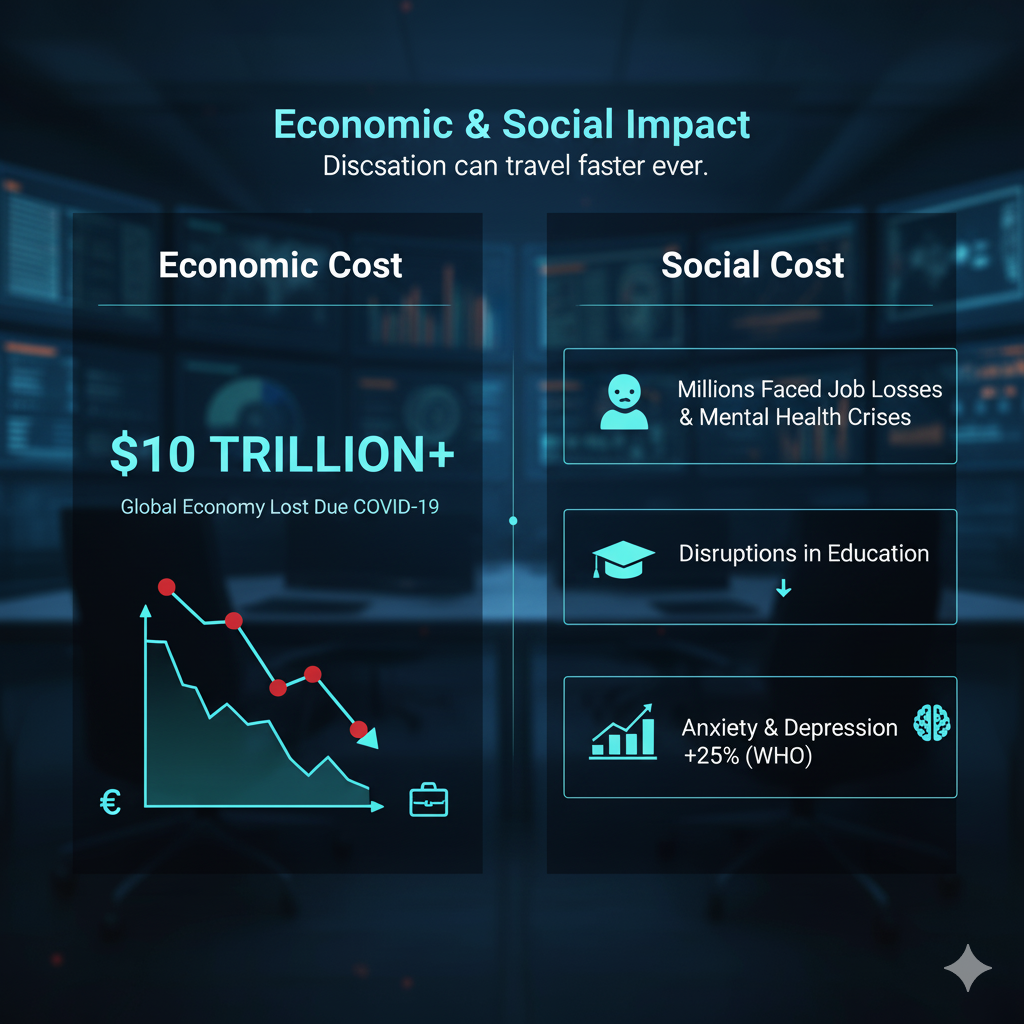
Conclusion
The COVID-19 pandemic was a wake-up call for humanity. It revealed weaknesses in health systems, inequalities in global governance, and the dangers of misinformation. But it also showed the power of science, technology, and international collaboration.
Future preparedness is not optional—it is essential. The world must invest in stronger health systems, global cooperation, data analytics, and fair access to medical technology. The lesson is clear: a virus anywhere is a threat everywhere.
By learning from the past and acting decisively now, the global community can ensure that the next pandemic is not a catastrophe but a challenge humanity is prepared to meet.

